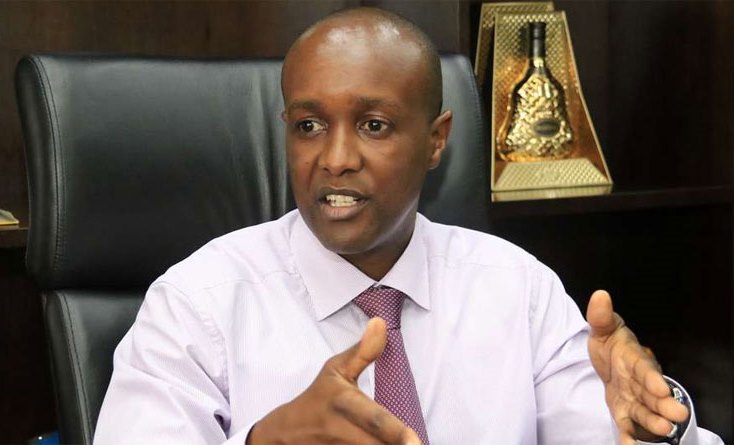By George Bakiwanya
Someone would wonder why there’s need for any form of “paperwork” or accountability in respect to personal life, but when it comes to managing your money, Budget is a necessary tool.
A handful of people believe budget is meant for relatively privileged counterparts who have diverse sources of income. Others think it induces a rigid lifestyle and robs them of their social happiness.
But why budgeting is important is simply because it helps you align your expenditures against income, and gives you a perfect outlook and understanding of your cash flows.
Budget is a guiding tool, especially when you’re “standing betweena rock and a hard place”.
It forms a baseline upon which you can make an informed spending decision; what to buy, how much and when to buy all these questions can easily be addressed by a financial plan “Budget”.
Budgeting has got a number of interesting benefits and one of the most thrilling is, it does not actually curtail you from enjoying things you find interesting, rather it gives you a groove on with peace of mind
Why a budget?
It insulates unplanned expenditure
“Money sets the heart free”;the moment it drops inside the pocket, you begin “to catch the vibe.”
Ithink this pair of shoe is nice for my infant, I think tonight’s comedy show will be lit -yes all this okay, but what the budget does is to guide you on how much you really need to spend on each bit.
This secret keeps you on top of the game.
Wisely list down your expenditures such as internet, utilities, Transport, entertainment, align them thoroughly to your income so you don’t have to come up against rough days.
Allows you to monitor your financial goals
Do you remember when you said you were going to tackle something this year and you haven’t?
Well, not only we set targets without honest financial back up plan to achieve them, but diverting funds is also a common practice. This off-switch is 85% caused by lack of a proper plan.
Therefore, it’s important to allocate your incomes such as salary, gains from sales, commissions, interest receivable, allowances, etc against your expenditures to keep your financial goals under surveillance.
It eases prioritization
You may find yourself in a tight spot, where you are faced with several pressing or emergency needs but on the flip side you have meager resources to suffice those demands concurrently.
This is rather a deadlock where you may even have a couple of sleepless nights contemplating on the way forward.
But one tiebreaker tool for such a paradox situation would be a budget, it helps you quickly “fine-tune”different activities, thereby, easing your decision-making process.
Cushions against Cash shortages
In most cases, cash shortages are caused by oversights. Due to lack of budget discipline, one earns money and they begin to buzz it on unplanned expenditures such as emergency car repairs, house repair, exorbitant shopping etc.
Therefore, the budget comes into play to safeguard against “impulse buying” by serving as a checklist for expenditures.
Sticking to the budget does not only shield you from cash run outs, but also gets you off the hook of contiguous borrowings.
Peace of Mind
You may disagree but the fact is, one’s audacity to take key decisions is often premised on their “liquidity”.
Lack of money is the biggest source of stress, not only for a person with huge responsibilities, but anyone with desires and ambitions.
But no matter your earning, if you possess a budget culture it is much easier to live within the means, simply because you can prudently manage the little resources at hand to maneuver along with the situation.
Balancing between Income and expenditure is the technic, if you mastered it well you will always find a silver lining.
Saving is easier
Saving is literally putting some money aside to leverage future opportunities or cater for emergencies. No matter the size of one’s “fishing net”, it is important to create a “sinking fund” to meet future expenses like school fees, marriage anniversaries, car replacement, medical complications, retirement etc
Budget helps you slash costs on “white elephants” and many other non-essential items, thus enabling you maintain a reserve fund.
While saving seems difficult for the underprivileged “omuntuwawansi” who earns hand to mouth, still, with basic budgeting knowledge, expenses can be squeezed and eventually some small percentage of income can be tossed into a side basket for the future.
Budgeting tips
Outline incomes first.
Quite a number of us begin by summarizing needs, this is an undesirable approach and it may flush out your budgeting spirit.
Since needs are usually enormous, their summary is likely to add up to a huge figure, this usually launches a skeptical mood over “where will all this money come from”and this forces one quit the whole process.
Therefore, given the fact, “you cannot spend what you don’t hold in your coffers”, it is imperative to begin with listing down your incomes, such as Salary, commissions, interests etc. this sets clear confines for coming up with expenditure list.
Don’t spend more than you earn
The relevancy of this is vindicated during the”2019 Coronavirus pandemic” that swept almost the whole world off its feet,
Where besides deaths caused by infection, still Hundreds died of hunger due to lack of savings to afford the inflated foodstuffs.
Therefore, you need to have a reserve fund to help you confront future emergencies,
Set financial goals
If money catches you offhand of financial goals, it takes a quick flight to waste.
It’s therefore paramount, to have your goals on paper before money knocks at your door; financial goals may include, paying off debt, saving for retirement, starting a business, vacation trip, buying a home, business promotion etc.
Goals must be realistic to make them synchronized to your true capability.
Don’t lose sight of economic factors
The common snag that even some senior planners hit on is failure to forecast future trends of economic aspects like tax rates, interest rates, inflation, foreign currency exchange etc.
For example most of the African countries have “weather beaten” economies, prices for products are highly volatile and yet price is one of the key determinants of cash flows.
Therefore inept speculation of economic situations is perilous, it busts the whole budget into deficit hence making it a bit challenging to achieve your financial goals.
The basic way of forecasting is by benchmarking between historical and current scale of statistics to come up with a close future estimate.
Involve individuals whom the budget Impacts.
Much as you are the chief custodian of funds, when it comes to budgeting, you need a round table discussion with your associates, family members, aides, etc such that you come up with a common bottom-line for events.
This will not only merit for 100% items coverage but also makes your counterparts feel honored to participate in decision making , thus helping you score 100% compliance towards agreed plans.
Don’t copy and paste
It’s erroneous to replicate any parts of earlier budget into the new template. This may lead to pasting of inaccurate information and consequently render the whole budget wrong and invalid.
Remember, some events may not be recurring or regular for instance a baby shower party, payment for professional membership, birthday cake etc. All these are one-off expenses that can’t qualify on a monthly menu.
Therefore, seek to be as original as possible to elude shortages that may arise as a result of misstatement of figures due to “copycat syndrome”.
Keep track of cash flows
This brings us to the tail end of the budget. At this stage you are meant to compare estimates against actuals as well keeping an eye on the overall flow of planned events.
The easiest way of doing this is by earmarking each expenditure against income and the most interesting bit of performance tracking is, it helps you strike the balance between income and expenditure.
It as well keeps you in control of your money so that you won’t have to “suffer high blood pressure” one day due to regrettable financial oversights and blunders.
The author is an accounting specialist who has choked more than 8yrs of field experience. He has worked with different organizations including Federation Of Uganda Football Associations (FUFA), BRAC Uganda, etc. Twitter@bakiwanyageorge, Linkedin@georebakiwanya




